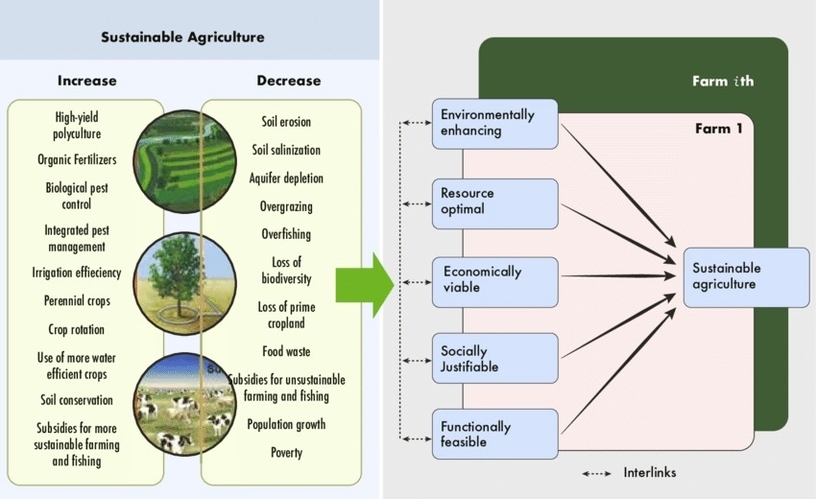
Sustainable agriculture is a farming system that aims to provide the resources necessary for present human populations while conserving the planet’s ability to sustain future generations. It focuses on promoting socioeconomic equity, earning profit, and maintaining ecosystem health. It also addresses the drawbacks of industrial agriculture, such as biodiversity loss, water pollution, and animal welfare .
ustainable agriculture is based on the principles of agroecology, which emphasizes the interdependence of ecological, social, and economic systems. It is a holistic approach to farming that considers the entire ecosystem, including soil, water, air, plants, animals, and humans. Sustainable agriculture seeks to balance the needs of the environment, society, and economy by promoting practices that are environmentally sound, socially responsible, and economically viable .
One of the key tenets of sustainable agriculture is the promotion of biodiversity. This involves planting diverse crops, including heirloom plants, which are often suited to a region’s particular climate. Rather than relying on a single crop in industrial monoculture, sustainable agriculture advocates the use of polyculture, in which multiple crops are grown together. Although polyculture is frequently more labour-intensive than industrial monoculture, it can reduce the need for chemical pesticides and fertilizers and generally improves soil quality. Similarly, crop rotation can help preserve soil productivity and lessen the need for agricultural chemicals for fertilization and pest control. The use of nitrogen-fixing cover crops, smother crops, and green manures can help restore soils and reduce erosion .
ustainable agriculture also emphasizes the importance of conserving water resources. This can be achieved through the use of drip irrigation, which delivers water directly to the roots of plants, reducing water waste. Similarly, the use of rainwater harvesting systems can help capture and store rainwater for later use. Sustainable agriculture also promotes the use of water-efficient crops and the reduction of water-intensive crops, such as rice, in areas with limited water resources .
Another important aspect of sustainable agriculture is the promotion of animal welfare. Sustainable agriculture advocates for the use of humane animal husbandry practices, such as free-range grazing and the use of natural feed. It also discourages the use of antibiotics and hormones in animal feed, which can have negative
